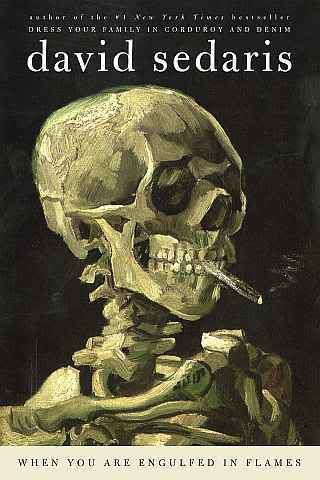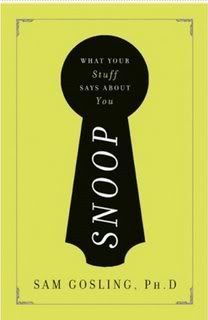[God is a concept by which we measure our pain]
Someone posted a comment the other day to my entry about the tsunami. They said, basically, that the disaster was a bitch-slap to the Muslims ("idolators") administered by a particularly moody God. I'm sure this theory has been broadcast from the pulpits since the destruction occurred. What's bad is that I can't exactly argue with it, since I'm not in God's inner circle and I don't get the Insiders' Metaphysical Reasons for the Natural Disaster of the Decade newsletter.
This idea of the tsunami and its after effects as punishment intrigues and saddens me. I don't formally talk to God much these days, since I'm battling with how I feel about him (her? it? G-d?). I mean, I went through a brief period where I wanted to be a straight-up atheist because I was fed up with the shortcomings of Christianity, but such drastic nihilism doesn't suit my hopeful nature. I mean, I really, really want there to be a benevolent creator out there somewhere who will take care of good people and set bad people straight and cushion that transition from life to death with some sort of Q&A session where we'll get to learn all of life's unknowns. I want ultimate justice to be handed out. I really do. But a giant tsunami killing poor fishermen and children with no prejudice is hardly the kind of justice I envision possible from the same being who created flowers, love, and the internet. I can't really imagine God, who by all accounts is perfect, harboring enough hatred to kill out of spite, since hatred is an imperfect emotion. But I understand that some people argue that God's hatred is perfect. Whatever that means.
I've settled fairly comfortably into agnosticism, which, for me, is a constant state of uneasy skepticism. I'm not sure that there is a God, and I'm not sure that there isn't. I believe there's one, but I'm going on totally self-serving faith here, because I don't want to accept that we can ever just not exist some day (even though you could argue that there has already been a day when we didn't exist). Being agnostic means that you're never really in a position to assign characteristics to God and hold fast to your assumptions. Agnostics have no sacred text (John Lennon albums?) to refer to and thump when things get hairy. But we also don't have that binding allegience to a particular faith or denomination or whatever to worry about leaving if our beliefs begin to evolve, as they will no doubt continue to do as we get older, wiser, and more afraid of death.
I'm agnostic because I'm just not satisfied with the God presented to me in the Bible and by most orthodox religions. I don't buy the idea of a humorless, angry, self-centered God who rains down fiery (or, most recently, watery) death on idolators, sodomites, sluts, potty mouths, heretics, etc. I want, I need a God who doesn't care who and how you choose to love as long as you love at all. I need a God who doesn't get his holy panties in a wad if you have a colorful vocabulary and like to have a good drink or smoke every now and again. I need a God who doesn't passive-aggressively demand that you attend church every week for obligatory worship. I need a God who feels that appreciating nature and the earth and all its resources by not abusing it and its denizens is the best way to worship him. I need a God who likes to laugh, even at himself.
My parents told me a month or two ago that I was past the "covenent of childhood" and that my soul is in play between the forces of good and evil. They must think I'm going to the dark side since I dissent from their super-Christian viewpoint every now and again (and I'm a dirty liberal). But the fact that they are worried about me and my eternal soul sort of scares me. Just how "good" of a person do you have to be to secure a table in heaven – or at least in the better-than-purgatory section reserved for us quasi-believers? Is it really all about going to church and having faith in an idea that can't be proved or disproved? Is it really about eating the symbolic flesh of a long-haired hippie from 0 B.C.? I learned in church that you can be a horrible rapist/murderer/lawyer up until the second you croak, and as long as you take Jesus as your savior at that moment, you're home free. On the other hand, if you're a good person during your life but you never declare that you're a follower of Jesus, St. Peter is going to give you the finger when you arrive at the Pearlies. What a crock of shit. Is this really what we're supposed to believe?
I know purists in every religion will tell you that you can't pick and choose the qualities you'd like your God to have; you have to shape yourself to fit his/her/its criteria or else get cast into the fiery pits of hell for eternity. But I think that's selling God short. I think God is way too, um, smart for those games. To be honest, I can't see myself wanting to hang out with a homophobic, sexist, racist, vain, self-important, narcissistic God who demands worship and praise and extravagent cathedrals and tithes and refuses to answer or even acknowledge perfectly legitimate questions from the peons down below. I honestly can't see the appeal of being good enough to get into heaven if it means I'll have to spend the rest of eternity with Jerry Falwell, Strom Thurmond, George W. Bush, and a wacky PMS-ing Deity.
So, like many other people in my same situation, I'll keep questioning and guessing, hoping that I can discern meaning through experience and emotion. We humans are thrown into this world with no frame of reference (except for New York tourists, who have the Times Square Cup of Noodles to work with). If we're born into a religious family, we get indoctrinated with all sorts of fanciful ideas that we begin to question as we age. Some of us will become frustrated with the lack of answers we'll get; others will become stronger in their faith because the idea of a silent father figure rooting for them helps them get through tough times. The weather will gnash its teeth at us, pets will die, grandparents will perish, then parents, then friends, then spouses. And the whole time, we never get any closer to understanding what the hell we're trying to do here. There's no burning bush for most of us. And by the time we're ready to die, we're so fucking scared that we're willing to believe in anything so long as it means we'll never really have to die. Millions before me have come and gone and tried to undo this riddle. None have, and none will. I certainly won't on a blog.
Someone posted a comment the other day to my entry about the tsunami. They said, basically, that the disaster was a bitch-slap to the Muslims ("idolators") administered by a particularly moody God. I'm sure this theory has been broadcast from the pulpits since the destruction occurred. What's bad is that I can't exactly argue with it, since I'm not in God's inner circle and I don't get the Insiders' Metaphysical Reasons for the Natural Disaster of the Decade newsletter.
This idea of the tsunami and its after effects as punishment intrigues and saddens me. I don't formally talk to God much these days, since I'm battling with how I feel about him (her? it? G-d?). I mean, I went through a brief period where I wanted to be a straight-up atheist because I was fed up with the shortcomings of Christianity, but such drastic nihilism doesn't suit my hopeful nature. I mean, I really, really want there to be a benevolent creator out there somewhere who will take care of good people and set bad people straight and cushion that transition from life to death with some sort of Q&A session where we'll get to learn all of life's unknowns. I want ultimate justice to be handed out. I really do. But a giant tsunami killing poor fishermen and children with no prejudice is hardly the kind of justice I envision possible from the same being who created flowers, love, and the internet. I can't really imagine God, who by all accounts is perfect, harboring enough hatred to kill out of spite, since hatred is an imperfect emotion. But I understand that some people argue that God's hatred is perfect. Whatever that means.
I've settled fairly comfortably into agnosticism, which, for me, is a constant state of uneasy skepticism. I'm not sure that there is a God, and I'm not sure that there isn't. I believe there's one, but I'm going on totally self-serving faith here, because I don't want to accept that we can ever just not exist some day (even though you could argue that there has already been a day when we didn't exist). Being agnostic means that you're never really in a position to assign characteristics to God and hold fast to your assumptions. Agnostics have no sacred text (John Lennon albums?) to refer to and thump when things get hairy. But we also don't have that binding allegience to a particular faith or denomination or whatever to worry about leaving if our beliefs begin to evolve, as they will no doubt continue to do as we get older, wiser, and more afraid of death.
I'm agnostic because I'm just not satisfied with the God presented to me in the Bible and by most orthodox religions. I don't buy the idea of a humorless, angry, self-centered God who rains down fiery (or, most recently, watery) death on idolators, sodomites, sluts, potty mouths, heretics, etc. I want, I need a God who doesn't care who and how you choose to love as long as you love at all. I need a God who doesn't get his holy panties in a wad if you have a colorful vocabulary and like to have a good drink or smoke every now and again. I need a God who doesn't passive-aggressively demand that you attend church every week for obligatory worship. I need a God who feels that appreciating nature and the earth and all its resources by not abusing it and its denizens is the best way to worship him. I need a God who likes to laugh, even at himself.
My parents told me a month or two ago that I was past the "covenent of childhood" and that my soul is in play between the forces of good and evil. They must think I'm going to the dark side since I dissent from their super-Christian viewpoint every now and again (and I'm a dirty liberal). But the fact that they are worried about me and my eternal soul sort of scares me. Just how "good" of a person do you have to be to secure a table in heaven – or at least in the better-than-purgatory section reserved for us quasi-believers? Is it really all about going to church and having faith in an idea that can't be proved or disproved? Is it really about eating the symbolic flesh of a long-haired hippie from 0 B.C.? I learned in church that you can be a horrible rapist/murderer/lawyer up until the second you croak, and as long as you take Jesus as your savior at that moment, you're home free. On the other hand, if you're a good person during your life but you never declare that you're a follower of Jesus, St. Peter is going to give you the finger when you arrive at the Pearlies. What a crock of shit. Is this really what we're supposed to believe?
I know purists in every religion will tell you that you can't pick and choose the qualities you'd like your God to have; you have to shape yourself to fit his/her/its criteria or else get cast into the fiery pits of hell for eternity. But I think that's selling God short. I think God is way too, um, smart for those games. To be honest, I can't see myself wanting to hang out with a homophobic, sexist, racist, vain, self-important, narcissistic God who demands worship and praise and extravagent cathedrals and tithes and refuses to answer or even acknowledge perfectly legitimate questions from the peons down below. I honestly can't see the appeal of being good enough to get into heaven if it means I'll have to spend the rest of eternity with Jerry Falwell, Strom Thurmond, George W. Bush, and a wacky PMS-ing Deity.
So, like many other people in my same situation, I'll keep questioning and guessing, hoping that I can discern meaning through experience and emotion. We humans are thrown into this world with no frame of reference (except for New York tourists, who have the Times Square Cup of Noodles to work with). If we're born into a religious family, we get indoctrinated with all sorts of fanciful ideas that we begin to question as we age. Some of us will become frustrated with the lack of answers we'll get; others will become stronger in their faith because the idea of a silent father figure rooting for them helps them get through tough times. The weather will gnash its teeth at us, pets will die, grandparents will perish, then parents, then friends, then spouses. And the whole time, we never get any closer to understanding what the hell we're trying to do here. There's no burning bush for most of us. And by the time we're ready to die, we're so fucking scared that we're willing to believe in anything so long as it means we'll never really have to die. Millions before me have come and gone and tried to undo this riddle. None have, and none will. I certainly won't on a blog.




















6 Comments:
Utter Brilliance! Brilliance, I say! Brilliance! I don't want to spend an eternity with Pat Robertson, Jerry Falwell, Phyllis Scaffly (sic), my nosy pious-than-thou great aunt, and James Dobson either. That would be my idea of hell. But if we are going to Hell, like I always say, at least we can burn in eternity together. It'll be like a gigantic gay club with dancing demons and whatnot. It'll be like Tribe only more demon-ier.
1. As a dedicated Christian (and a Southern Baptist at that), I think it's safe to say the view that the tsunamis were a heaven-sent punishment upon Muslims is not being broadcast by most Christian teachers. Instead, the focus has mainly been on our obligation to help those in need--just as Jesus taught us.
2. "I need a God who doesn't passive-aggressively demand that you attend church every week for obligatory worship."
I'm almost certain God doesn't demand we go to church--at least, not in the New Testament. You can look for yourself, and I'll continue searching as well. Jesus does tell us, however, that when two or more are gathered in His name, He's there (Matt. 18:20). God wants us to gather because He knows we're stronger together than we are apart--the same idea Lincoln and countless others have echoed in vastly different circumstances. It's not about God's demands; it's how He made us.
3. 0 B.C. isn't a year. Just saying.
4. "Millions before me have come and gone and tried to undo this riddle. None have, and none will."
It's really quite simple what we're called to do: to serve. Serve God and serve our neighbors. Serve those in need. That tends to tick a lot of people off and causes all of us to fall short at the same time.
5. "I really, really want there to be a benevolent creator out there somewhere who will ... cushion that transition from life to death with some sort of Q&A session where we'll get to learn all of life's unknowns."
When we die, we don't figure out God's reasons for doing what He does. That's what we spend life doing--trusting God while constantly studying and talking to Him in order to discover and reflect His limitless love.
I realize many Christians set a pretty crappy example at times. But we're people, and people screw up. The measure of our faith is how we respond to our failures when we realize we have failed. And we can only do that by speaking to a God who loves us, but also gives us rules that are meant to lessen the pain life inflicts on us, not enhance it. In that case, your title is nearly correct.
Thanks for the chance to respond. And I still read your blog.
Damn, Colby wrote an essay. I will say this: the liberal commentators in the mass media unfairly stereotype all Christians as bigoted, Bible-thumping holier-than-thou homophobes/misogynists/racists/anti-Muslims Republicians (sic).
0 B.C. was lame joke attempt No. 47!
Oh.
O BC was your attempt at comedy.
Nice try, Linners.
Well, I was originally going to go with 0 A.D., but most people think of A.D. as "after death" and not "in the year of the lord," so I didn't think it would translate as well as B.C. I'll have to read a few George Carlin books before I have the blasphemous joke down to an art.
Post a Comment
<< Home